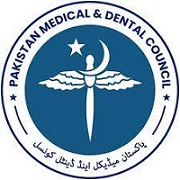COMPARATIVE STUDY OF SECOND GENERATION ANTI HISTAMINE (Cetirizine Hydrochloride 10mg) ALONE VERSUS ANTIHISTAMINE IN COMBINATION WITH LEUKOTRIENE RECEPTOR ANTAGONISTS (Montelukast Sodium 10mg) IN THE TREATMENT OF ALLERGIC RHINITIS
Abstract
Background: Allergic rhinitis is an inflammatory disease of the nasal mucosa, induced by an immunoglobulin Emediated reaction in allergen-sensitized subjects. Allergen avoidance and pharmacotherapy are the cornerstones of allergic rhinitis management. Pharmacotherapy is individualized to the patient based on type of symptoms, their duration and severity, co-morbidities, response to prior treatment and patient preference. Classes of drugs used to treat allergic rhinitis include antihistamines, corticosteroids, mast cell stabilizers, decongestants, nasal anticholinergics, and leukotriene-receptor antagonists.
Objective: The objective of the study was to compare the Second Generation Antihistamine (Cetirizine) alone versus Antihistamine with Leukotriene Receptor Antagonist-LTRA (Montelukast Sodium) in the treatment of Allergic Rhinitis AR.
Method: It was single blind hospital-based study in which 200 patients were included. The patients were divided into two equal groups (Group-A and Group-B). Group-A was treated with Cetirizine hydrochloride 10mg/day alone while Group-B was treated with Cetirizine hydrochloride 10mg/day along with Montelukast Sodium 10mg/day.
Results: Among 100 Group-A patients, 35.0% were 15-20 years old and among 100 Group-B patients, 34.0% were 15-20 years old. 57.0% Group-A and 55.0% Group-B patients had seasonal allergy. Among Group-A patients, 26.0% had nasal mucosa pale on revisit and 79.0% patients had any remarkable sedation with dispensed medicine. But among Group-B patients, only 5.0% had nasal mucosa pale and swollen on revisit and only 5.0% patients had any remarkable sedation with dispensed medicine.
Conclusion: Study concluded that combination of cetirizine hydrochloride 10mg/day & montelukast sodium 10mg/day is more efficacious in the treatment of allergic rhinitis than cetirizine hydrochloride 10mg/day alone.






